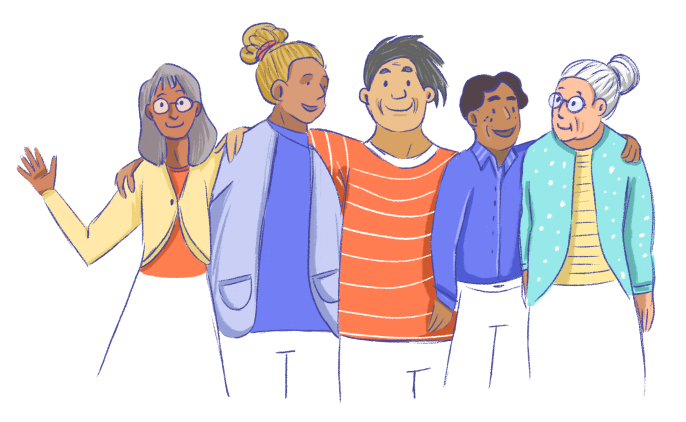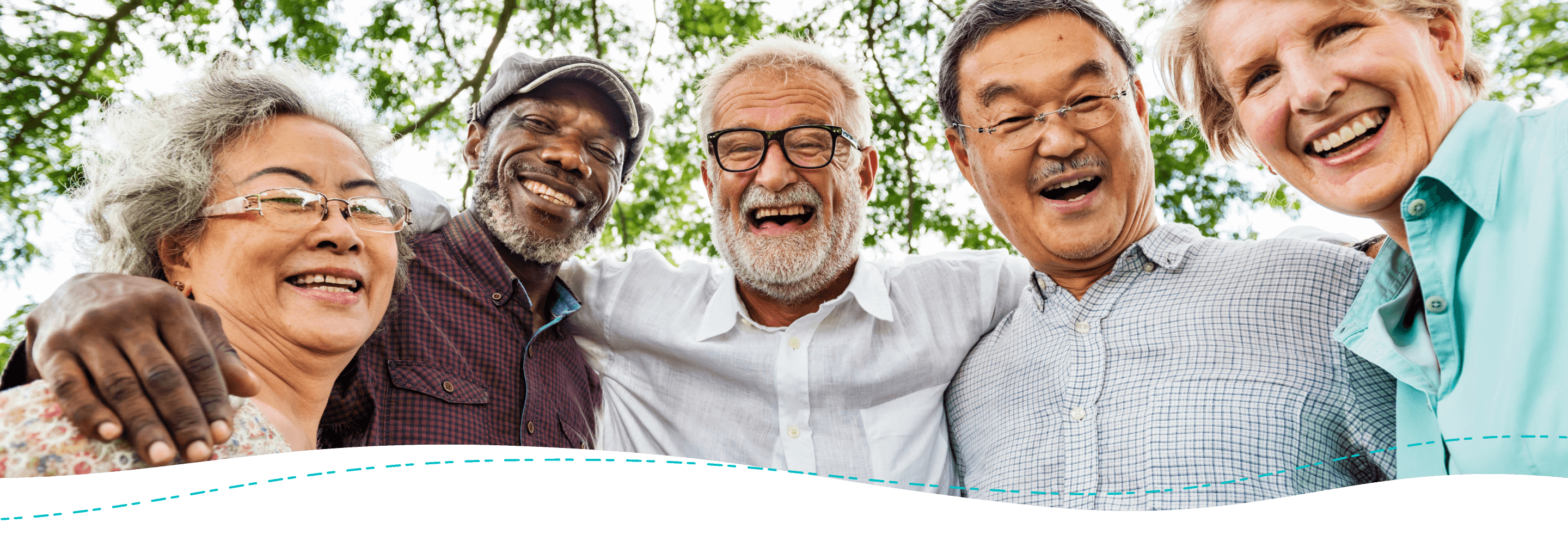The power of friendship
When we consider our later years, there are a few questions that come to mind. Why and how do people live wonderfully long, engaged and rich lives in the homes and communities they love?
How important are factors such as wealth, high achievement, low cholesterol, exercise, social status and class?
These are the questions that first led us on our journey to find two inspirational studies.
1. The Blue Zones by Dan Beuttner with the help of the National Geographic, and
2. The Study of Adult Development by researchers at Harvard.
If you've heard us speak on these topics before, you’ll know that the findings and insights from these studies are both surprising and obvious, reassuring and thought provoking.
So, what are these studies all about?

The Blue Zones
This study identified places around the world where people regularly live vibrant and healthy lives past the age of 100 – naming these Blue Zones.
As you’d expect, diet and exercise play a very significant part. However, the study looked beyond nutrition and activity to examine the influence and effect of social and cultural constructs on longevity. It turns out that common to all Blue Zones is family, community and friendship.
The sense and creation of community and friendship are perhaps seen at their greatest in Okinawa, Japan. The Okinawan community and culture are built upon strong social networks, called Moais.
A Moai is a lifelong group of friends that support each other from childhood through to old age. Originally, a Moai brought together resources of the entire village to help an individual who needed it. These days, it’s more of a social support network.
Members of a Moai used to be matched together in childhood. They put together groups of five young children in a lifelong commitment.
It was like a second family, and they encouraged them to meet regularly to talk, play, and help each other out.
As they grow into adulthood, Moai members are there for the good and the bad. They provide companionship, love and even financial help if someone is doing it tough. They’re like a safety net of friendship. Some Moais have lasted over 90 years.
The Study of Adult Development
This study was conducted by researchers at Harvard. It was a longitudinal study that followed two groups of men over 75 years. The purpose of the Study of Adult Development is to better understand and identify predictors of healthy ageing. It’s one of the most comprehensive longitudinal studies in history.
Like The Blue Zones, the study looked beyond the more ‘clinical’ aspects of healthy ageing. It focused on monitoring and measuring the physical and emotional wellbeing of two distinctly different populations based on their social class. They compared 456 men from some of the most disadvantaged areas in Boston and 268 male graduates from Harvard’s classes of 1939-1944.
The study found that social connections are great for us. People who are more socially connected to family, friends and the community are happier, physically healthier and live longer than people who are less well connected.
Having someone or a group of people to rely on helps the nervous system relax, the brain stays healthier for longer, and reduces emotional and physical pain.
The data is also very clear that those who feel lonely are more likely to see their physical health decline earlier and die younger.
Studies have found that a lack of social relationships can put you at risk of premature death. The risk is as high as well known risk factors like smoking or alcohol consumption. It’s even more impactful than physical inactivity and obesity.
Unfortunately, loneliness is common, with one in 6 people in Australia experiencing it.
Ageing at home
The importance of social connection, friendship and community engagement are now being better understood in relation to home care. This is important as the vast majority of Australians want to age at home, in their communities, connected to the friends and family they love for as long as possible.
One study found between 78 and 81 percent of older Australians want to live in their own home as they age.
These are critical things to think about as we grow older. Starting simple services in the home that maintain your Moai, keep you connected to your community and engaged with people makes a different to the quality and longevity of life.
